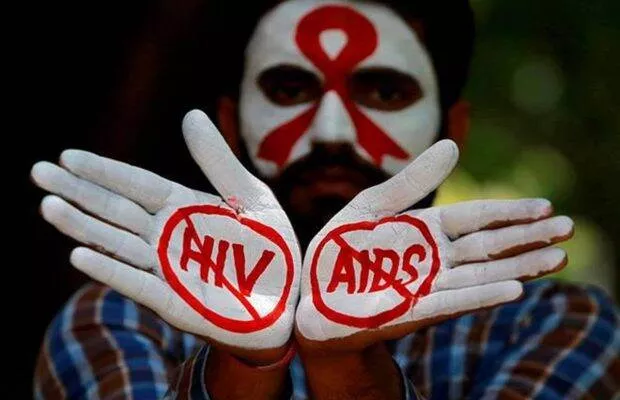World AIDS Day on December 1 seeks to spread awareness and action towards global HIV-AIDS control. Read on.
India has the third largest population of people living with HIV, the viral infection that leads to AIDS. Of the 2.35 million people living with HIV in the country, only around 1.78 million know that they are infected. Almost 0.22 per cent of the adult population in the country live with HIV. However, it must be acknowledged that a gap in testing may be keeping numbers low. Many people also don?t go for testing fearing the socio-economic impact of testing positive.
According to Dr. Sunita Upadhyaya, Associate Director for Programs, CDC, ?A streamlined approach to HIV care is a must to bridge the gap in testing. The government has a future-forward vision to transform the national approach to HIV care, with significant plans to take charge of treatment centres, viral load testing and optimize lab functioning pan-India. Facilitating a smooth transition for states, the CDC has also extended support, such as in viral load sample transportation, across Manipur, Mumbai, Andhra Pradesh and Telangana.?
Support needed to reduce stigma attached to AIDS
World AIDS Day on December 1 seeks to spread awareness and action towards global HIV-AIDS control. This is mainly done via education, prevention, stigma reduction, and accelerated testing and treatment. In line with this year?s theme, ?Ending the HIV Epidemic: Equitable Access, Everyone?s Voice,? multi-stakeholder support and initiatives are crucial steps to end this epidemic, in India and worldwide. This becomes all the more important in the face of stigma attached to this disease.
As Dr. Devi R, Consultant ? Reproductive Medicine, Milann Fertility Centre, Indiranagar, Bangalore, says, ?While India was spontaneous towards adoption of HIV therapies, people still face stigmas that affect them at various levels and act as hurdles in HIV prevention. However, society continues to assume that this illness is communicable and may infect others.? Dr Devi R goes on to say that it is a fact that HIV cannot be transmitted to another person by shaking hands, touching, or simply being in the same room as an HIV-positive patient. It can only be passed on by blood, seminal fluid, rectal fluids, vaginal fluids, or breast milk. Talking about social-economic status, it can affect the quality of life as well as the possibilities and privileges that one can avail in their respective societies.
The gradual change in the disease?s character
According to Dr. Vinod Kumar, Consultant ? Reproductive Medicine, Milann Fertility & Birthing Centre, JP Nagar, Bangalore, ?When evaluating the factors influencing HIV patient well-being, a fascinating trend emerges connected to the illnesses changing character through time, from a devastating disease in the past to a tolerable chronic health condition today. The primary objective of HIV treatment is to reduce a person?s viral load to as low a level as feasible. HIV treatment choices have considerably increased throughout the years as a result of medical developments. New anti-retroviral medications have been created, significantly increasing the life expectancy of HIV patients.?
From incurable to manageable in just decades
Dr. SS Vasan, CMO, and Co-founder, Janani.life says that HIV/AIDS has evolved into a chronic, controlled, but not yet curable infectious illness thanks to medical improvements and public awareness initiatives. Where, on one hand, this progress is noteworthy, yet the quality of life of HIV-positive patients is still a major worldwide concern. According to him, ?There are different social-economic and psychological factors that hamper the lives of people living with HIV. Various social demographic characteristics, such as education level, family economic situation, and work status, might also contribute to excellent global Health-related quality of life or HRQoL.? Dr Vasan goes on to say that it is very important for patients and their families to be aware of such factors as people suffering from HIV/AIDS tend to have a lower quality of life in comparison to others. Proper HIV treatment and viral control is key to improving treatment effectiveness. Additionally, it is vital to give equal attention clinical and psychological health of the patients.
